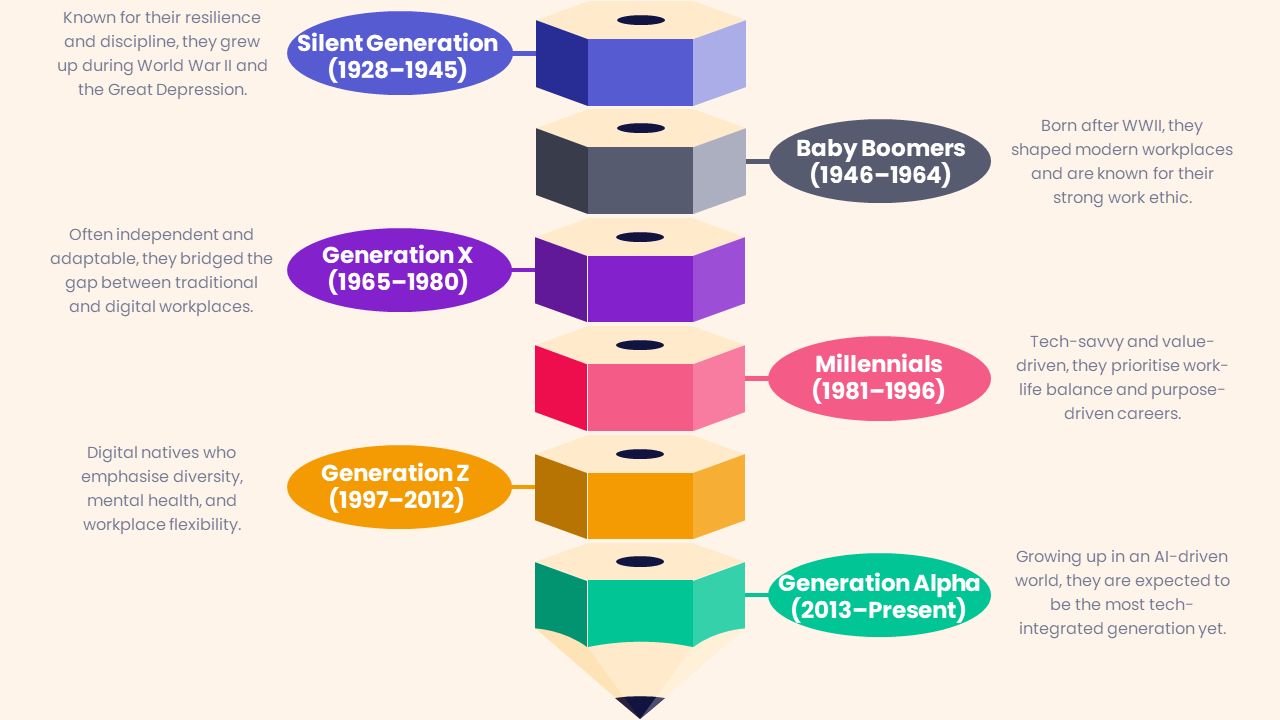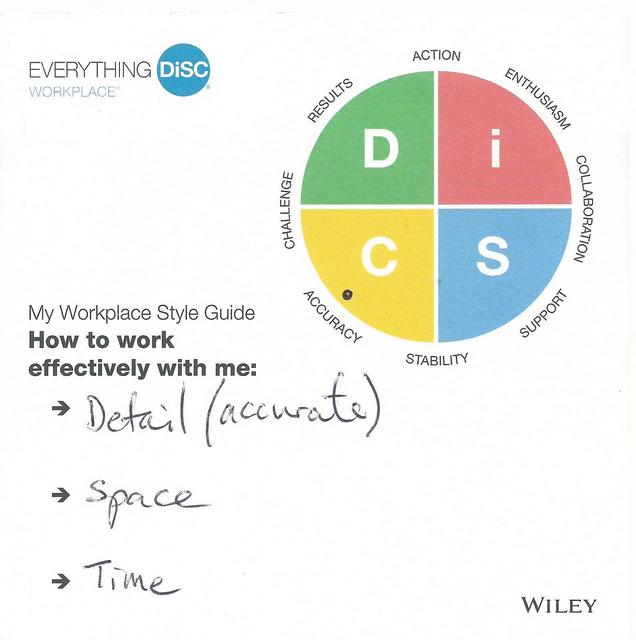![20240704---FullLogoHR-[fm-email]---crop---801-x-529](https://www.itda.com/wp-content/uploads/2024/07/20240704-FullLogoHR-fm-email-crop-801-x-529.png)
#5 – Embracing a multigenerational workforce
Key points:
- Challenges – workplace integration and inclusion, recruitment, culture, communication styles
- Skills on offer – all generations have something to offer each other
- Motivations – different generations are motivated by different needs and wants
Firstly, a bit of background on the coined phrases of generations over the last century:

Challenges
Our brains are geared towards creating categories but in this respect we can be prone to pigeonholing individuals. Possibly a better way to look at the groupings is to consider that everyone has a little of each of the stereotypical traits and, therefore, everyone has something to offer.
There’s a common misconception that someone from the baby boomer generation won’t be adept with anything technical. In actual fact, some of the baby boomers and Gen X were pioneers with computers and made a significant contribution to the last few decades of technology growth.
Recruitment has proved challenging with generational changes. Historically it was considered that you were a safe recruit if your CV showed longevity in previous roles as this suggested loyalty and stability. Nowadays, Gen Z and millennials can be considered as more transient in roles and therefore a ‘flight risk’ in terms of recruitment costs and training. Conversely, a varied career history could be viewed as a positive in roles such as marketing, as it demonstrates an individual has a wider business exposure and therefore experience.
Skills
We need more of a cultural shift where we embrace all generations in the workplace. Too often we can niche an employee’s tasks based on their age bracket rather than focussing on what they might be able to contribute, and their individual skill set. In a workplace we may assume that younger employees have all the great new ideas whereas more mature employees have tried and tested processes – there’s no right or wrong, we need to encourage an inclusive culture where all contributions are respected and valued.
Reciprocal mentoring is a fantastic way to create more synergy between generations in the workplace. Someone from Gen X who MAY struggle with technology could be buddied with a Gen Z employee who MAY not be able to prioritise tasks and work to a schedule as they struggle with time management. In this respect each individual is sharing their personal strengths and this can help to embed an inclusive culture in an organisation.
Motivations
Different generations may have differing work expectations regarding their benefits and remuneration package. For example, someone who is Gen X may favour a competitive salary package and pension scheme whereas someone from Gen Z or a millennial may be more interested in a flexible/compressed work pattern and a benefits and rewards package.
Working from home can also still be a motivating factor for an employee and too often we find that the generation of managers in the Gen X category may not trust individuals to work productively at home. This is purely based on the fact that Gen X employees would historically have never worked from home. We need to create a culture of leaders that empower and trust their teams – often staff are actually more productive at home.
Outside the workplace
We also had a lively general discussion about the impacts of technology – for better or worse. We are in danger of alienating some of our older generation who are not tech savvy and may not even have an email address. Conversely, the skills our older generation have such as baking and cooking can be lost with the younger generation who think nothing of ordering breakfast, lunch, dinner and cakes to be delivered to their door in 30 minutes with a few clicks!
Everything DiSC
Here at ITDA, we believe it is fundamental that everyone should be treated as an individual. Everything DiSC is a suite of assessments, based on the needs-based DiSC model, that indentifies an individual’s primary behavioural style without pigeonholing, helping them to understand themselves, their needs and those of other people. In a multi-generational team, it can be really interesting and illuminating to see that individuals can have a very similar DiSC profile, even when they are generations apart.
#HR #FutureOfWork #HRTrends2025
Useful information
Sharing useful information can help colleagues work more effectively with each other. This is an example of those completed by each participant for a face-to-face meeting of multi-generational team:

#HR #FutureOfWork #HRTrends2025

Understand yourself. Understand others. Manage the difference.
We’ve been using DiSC and The Five Behaviors programmes with big name clients for a long time.
It’s been a total game-changer when it comes to getting everyone on the same page and enjoying their work.
The way it works is it starts from the top down – the leadership team goes through it first, leading by example, and then it’s rolled out to the rest of the organisation. It really helps everyone understand each other’s behavioural and communication styles and how to work together more effectively.
We’ve seen it make a huge difference in avoiding workplace sickness and burnout; people are just way happier and more engaged when they know how to collaborate well.
We all want to go to work happy 😊
Get in touch
Tell us about the challenges in your organisation
